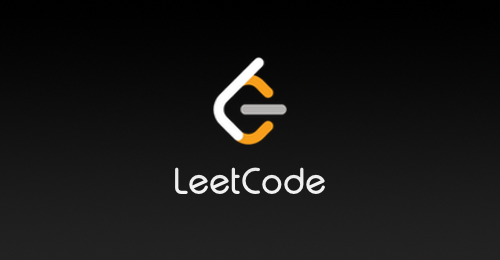748. Shortest Completing Word
Description
Given a string licensePlate and an array of strings words, find the shortest completing word in words.
A completing word is a word that contains all the letters in licensePlate. Ignore numbers and spaces in licensePlate, and treat letters as case insensitive. If a letter appears more than once in licensePlate, then it must appear in the word the same number of times or more.
For example, if licensePlate = "aBc 12c", then it contains letters 'a', 'b' (ignoring case), and 'c' twice. Possible completing words are "abccdef", "caaacab", and "cbca".
Return the shortest completing word in words. It is guaranteed an answer exists. If there are multiple shortest completing words, return the first one that occurs in words.
Example 1:
- Input: licensePlate = “1s3 PSt”, words = [“step”,”steps”,”stripe”,”stepple”]
- Output: “steps”
- Explanation: licensePlate contains letters ‘s’, ‘p’, ‘s’ (ignoring case), and ‘t’.
“step” contains ‘t’ and ‘p’, but only contains 1 ‘s’.
“steps” contains ‘t’, ‘p’, and both ‘s’ characters.
“stripe” is missing an ‘s’.
“stepple” is missing an ‘s’.
Since “steps” is the only word containing all the letters, that is the answer.
Example 2:
- Input: licensePlate = “1s3 456”, words = [“looks”,”pest”,”stew”,”show”]
- Output: “pest”
- Explanation: licensePlate only contains the letter ‘s’.
All the words contain ‘s’, but among these “pest”, “stew”, and “show” are shortest.
The answer is “pest” because it is the word that appears earliest of the 3.
Constraints:
- 1 <= licensePlate.length <= 7
- licensePlate contains digits, letters (uppercase or lowercase), or space
' '. - 1 <= words.length <= 1000
- 1 <= words[i].length <= 15
- words[i] consists of lower case English letters.
💡 Hint 1:
Count only the letters (possibly converted to lowercase) of each word. If a word is shorter and the count of each letter is at least the count of that letter in the licensePlate, it is the best answer we've seen yet.
Submitted Code
class Solution(object):
def shortestCompletingWord(self, licensePlate, words):
"""
:type licensePlate: str
:type words: List[str]
:rtype: str
"""
plate_letters = {} # 키:licensePlate의 알파벳, 값:알파벳의 출현빈도
total_plate_letters = 0 # 필요한 총 글자 수(중복 포함)
result = ""
for ch in licensePlate:
if ch.isalpha():
ch = ch.lower()
plate_letters[ch] = plate_letters.get(ch, 0) + 1
total_plate_letters += 1
for word in words:
if len(word) < total_plate_letters: # 필요한 총 글자 수보다 짧으면 제외
continue
completing = True
for ch, cnt in plate_letters.items():
if word.count(ch) < cnt: # 필요한 글자가 없거나 적을 경우 제외
completing = False
break
if completing:
if result == "" or len(word) < len(result):
result = word
return result
Runtime: 0 ms | Beats 100.00%
Memory: 12.40 MB | Beats 83.08%
해시 테이블로 licensePlate의 알파벳과 알파벳의 출현 빈도를 세는 방법이 가장 깔끔한 것 같다.
Other Solutions
1st
import collections
class Solution(object):
def shortestCompletingWord(self, licensePlate, words):
lp = collections.Counter(c for c in licensePlate.lower() if c.isalpha())
ans = None
for w in words:
cw = collections.Counter(w)
if all(cw.get(c, 0) >= lp[c] for c in lp):
if ans is None or len(w) < len(ans):
ans = w
return ans
time complexity: 𝑂(𝑛*𝑚) ← n: 전체 단어 개수, m: 가장 긴 단어 길이
space complexity: 𝑂(1) ← 26 alphabets
collections 모듈의 Counter를 쓰면 딕셔너리에 값을 저장하는 과정을 빠르고 간단하게 구현할 수 있다.
licensePlate = “aBc 12c”
words = [“abccdef”, “caaacab”, “cbca”]
lp = {'c': 2, 'a': 1, 'b': 1}
w cw len
abccdef {'c':2, 'a':1, 'b':1, 'd':1, 'e':1, 'f':1} 7 → ans
caaacab {'a':4, 'c':2, 'b':1} 7
cbca {'c':2, 'b':1, 'a':1} 4 → ans(new)
ans = “cbca”
2nd
def shortestCompletingWord(self, licensePlate: str, words: List[str]) -> str:
pc = Counter(filter(lambda x : x.isalpha(), licensePlate.lower()))
return min([w for w in words if Counter(w) & pc == pc], key=len)
filter() 함수(괄호 안에 조건함수, 시퀀스 순으로 작성)와 & 연산자를 추가로 이용하여 더 짧은 코드를 만들 수도 있다.



Leave a comment